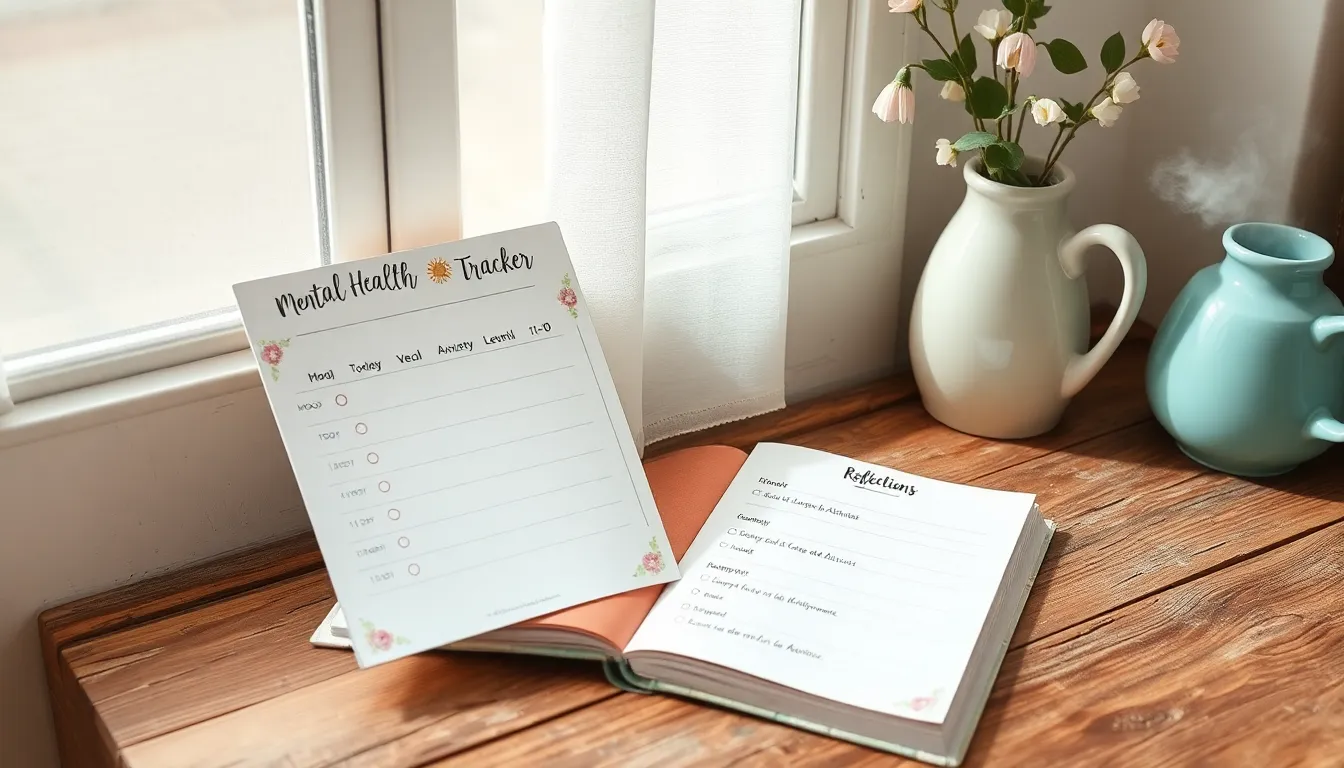In today’s fast-paced world, keeping a pulse on your mental health is crucial. Journaling offers a gentle yet powerful way to understand and nurture your emotional well-being.
By tracking your thoughts and feelings, you’ll uncover patterns and insights that can guide you toward a more balanced life. Embrace this journey to self-discovery with an open heart.
Establish Your Journaling Routine

Begin by setting a specific time each day for your journaling practice. Consistency builds habit. Even just five minutes can be transformative. Use a simple prompt to start, such as “Today, I felt…” or “I am grateful for…”.
Focus on what matters most to you. Reflect on emotions and experiences that impact your mental health. Consider using a list format to capture thoughts quickly.
- “What lifted my mood today?”
- “What challenges did I face?”
Keeping it brief ensures sustainability.
Select Mental Health Prompts

Begin by reflecting on your day with the prompt: “What moment today made me feel most alive?” This encourages mindfulness and gratitude, enhancing mental clarity.
Another effective prompt is: “What is one worry I can let go of today?” Regularly addressing this can help reduce anxiety and promote inner peace. Incorporate these prompts into your routine for a balanced mental health check-in.
Record Daily Mood Insights

Begin by noting your mood each day. Use a simple scale from 1 to 5 to capture how you feel. This helps you identify patterns and understand emotional triggers.
Use specific prompts to deepen insights. Try asking,
- “What event affected my mood today?”
- “What can I do to elevate my mood?”
These reflections encourage self-awareness and proactive care.
Review Entries for Patterns

Recognizing patterns in your journal entries can illuminate underlying emotions. Highlight recurring themes by reviewing entries weekly. This practice helps identify triggers and emotional trends.
Use specific prompts to deepen insights:
- What events frequently affect my mood?
- Which thoughts repeat often?
Consistent reflection aids growth and self-awareness.
Set Goals for Improvement

To set goals for improvement, reflect on your patterns and identify small, achievable changes. Consistency is key. Commit to one positive action daily, like practicing gratitude or mindfulness.
Use prompts to guide your focus: “What small step can I take today?” or “How can I nurture my mental health this week?” Tracking progress boosts motivation and builds resilience.
Conclusion: Creating Beautiful Outdoor Spaces
In harnessing the power of journaling for mental health, we explored five transformative concepts that can elevate your relationships. First, self-awareness is key; understanding your emotions helps you communicate better with loved ones. Second, identifying patterns in your feelings can reveal underlying issues that need addressing. Third, gratitude journaling fosters positivity and appreciation in your relationships. Fourth, setting intentions guides your actions, aligning them with your relationship goals. Lastly, reflection promotes growth by helping you learn from past interactions.
As an immediate next step, start a daily journaling habit by dedicating just five minutes each day to jot down your thoughts and feelings. This small commitment can lead to profound changes in how you connect with others.
Don’t let these insights fade away—bookmark this article now for easy reference. As you continue to nurture your mental health through journaling, you’ll find that your relationships become more resilient and fulfilling. Remember, the journey to relationship success is ongoing, and each step you take in understanding yourself brings you closer to deeper, more meaningful connections. Embrace this empowering tool and watch your relationships flourish.

